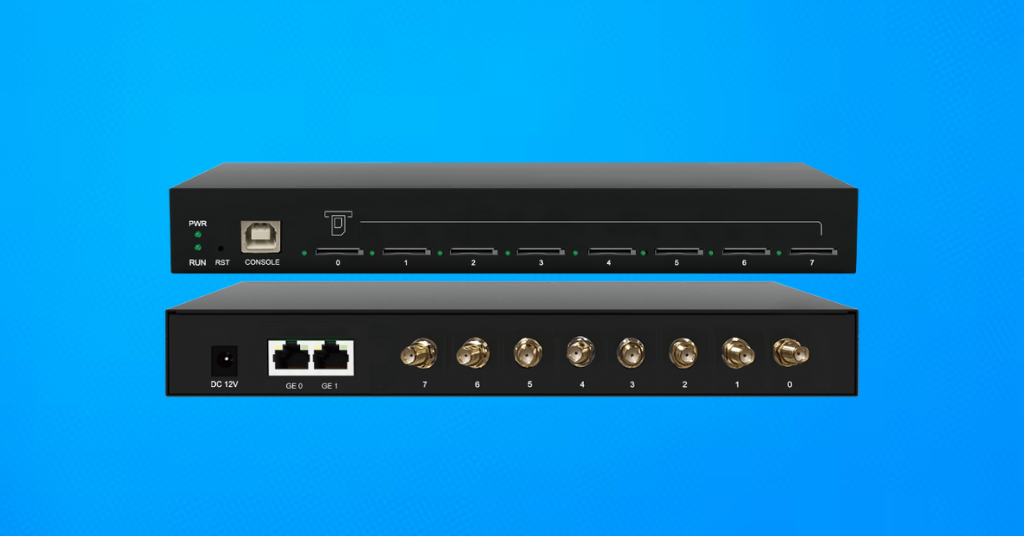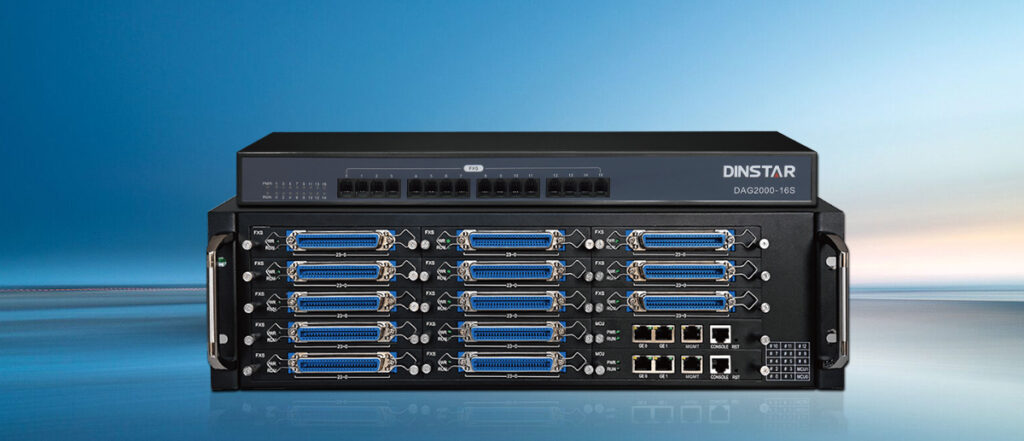In today’s fast-paced business environment, effective communication is more than a necessity—it’s a critical factor for growth. Businesses increasingly rely on cost-efficient and reliable communication solutions, and GSM gateways have emerged as a popular choice. Among them, the 8 Port GSM Gateway stands out for its balance of capacity, performance, and affordability. This article explores what an 8 Port GSM Gateway is, how it works, and why it is a valuable tool for modern businesses.
Understanding GSM Gateways
A GSM Gateway is a device that connects traditional telephony systems like PBX (Private Branch Exchange) with mobile networks. This integration allows businesses to make and receive calls through GSM networks without depending solely on fixed landlines. By doing so, businesses can significantly reduce communication costs, especially for outbound calls to mobile numbers.
GSM gateway supports multiple SIM cards and ports. Each port corresponds to one SIM card, which allows simultaneous connections to the mobile network. For instance, an 8 Port GSM Gateway can handle up to 8 SIM cards, enabling multiple simultaneous calls.
What is an 8 Port GSM Gateway?
An 8 Port GSM Gateway is a telecommunication device equipped with eight ports to host eight SIM cards. Each port functions as a separate communication channel, allowing businesses to make and receive multiple calls concurrently.
Key features of an 8 Port GSM Gateway include:
- Multiple SIM support: Can accommodate up to eight SIM cards for different mobile operators.
- High call capacity: Simultaneous handling of up to eight mobile calls.
- PBX integration: Seamlessly connects with existing IP PBX or analog PBX systems.
- Cost efficiency: Reduces mobile call expenses by routing calls through local SIM cards.
- Flexibility: Compatible with various VoIP and GSM protocols.
How Does an 8 Port GSM Gateway Work?
The operation of an 8 Port GSM Gateway is simple yet highly effective. Here’s a breakdown:
1. Connection to PBX System
The gateway connects to your PBX system via SIP or analog lines. This integration allows your existing telephony system to use GSM networks for call routing.
2. SIM Card Installation
Each port of the gateway is loaded with a SIM card from a mobile network operator. These SIM cards serve as the channel through which the calls are made or received.
3. Call Routing
When a call is initiated from the PBX system, the gateway checks the number and determines the most cost-effective route. If the number is a mobile number, the call is routed through one of the SIM cards in the GSM Gateway.
4. Simultaneous Calls
With 8 ports, the gateway can handle up to eight simultaneous calls. Each port acts independently, ensuring that multiple employees can make or receive calls without interference.
5. Monitoring and Management
Advanced 8 Port GSM Gateways come with web-based management interfaces. Administrators can monitor call logs, manage SIM cards, configure routing rules, and analyze call costs—all from a central platform.
Benefits of Using an 8 Port GSM Gateway
Implementing an 8 Port GSM Gateway in your business can offer several advantages:
1. Reduced Call Costs
One of the most significant benefits is cost reduction. By routing calls through local mobile networks, businesses can avoid expensive international and mobile charges from traditional telecom providers.
2. Seamless Integration
The gateway integrates smoothly with existing IP-PBX or analog PBX systems, eliminating the need for overhauling your current telephony setup.
3. Increased Call Capacity
With eight ports, multiple employees can make and receive calls simultaneously. This is particularly useful for call centers and medium-sized businesses.
4. Flexibility and Scalability
Businesses can easily add more SIM cards or expand to a higher-port GSM gateway if call volumes increase.
5. Reliability
GSM gateways offer a reliable alternative during network outages. Calls can still be routed through mobile networks even if fixed lines fail.
Applications of an 8 Port GSM Gateway
The versatility of an 8 Port GSM Gateway makes it suitable for a variety of business scenarios:
- Call Centers: Efficiently manage multiple calls simultaneously without relying solely on landlines.
- SMEs: Small and medium enterprises can reduce operational costs and streamline communication.
- International Businesses: Route international calls through local SIMs to save on expensive international rates.
- Remote Offices: Provide mobile connectivity to offices in locations with poor landline infrastructure.
- Promotional Campaigns: Use multiple SIMs for bulk marketing calls while managing them through a centralized system.
Choosing the Right 8 Port GSM Gateway
When selecting an 8 Port GSM Gateway, consider the following factors:
- Compatibility: Ensure the gateway is compatible with your PBX system.
- SIM Card Support: Check if it supports multiple operators for redundancy and cost efficiency.
- Call Quality: Look for gateways with robust echo cancellation and high voice clarity.
- Management Tools: Web-based dashboards and remote configuration capabilities simplify administration.
- Scalability: Consider future growth; some gateways allow easy expansion to more ports.
Conclusion
An 8 Port GSM Gateway is a powerful tool that combines flexibility, cost-efficiency, and reliability for modern business communication. By bridging PBX systems with mobile networks, it enables businesses to handle multiple calls simultaneously, reduce call costs, and maintain seamless connectivity.
Whether you are a call center aiming for efficient call handling, an SME looking to optimize communication costs, or a remote office seeking reliable connectivity, an 8 Port GSM Gateway is a smart investment. With proper installation and management, it can transform how your business communicates, ensuring smoother operations and better customer engagement.



